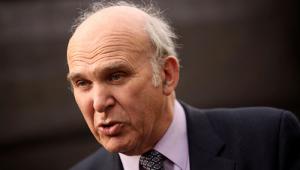25 May 2001
After John Prescott's sock-it-to-them contribution to the election campaign, we should no longer allow those jokes about the vigorous Americans running for office and the more sedate British merely standing for Parliament.
My initial reaction was that Prescott's confrontation in Rhyl had damaged the Labour Party by wiping out the front-page coverage of its election manifesto launch the same day. But on reflection I believe he did them a service. Apathy was always going to be Labour's biggest enemy in this election and the Prescott punch-up has made the election a talking point among many who would never otherwise have bothered with it. He may well have improved the election turnout figures single-handedly.
And, had he not done what he did, the papers might have made even more of the haranguing of Tony Blair on cancer care by Sharon Storer, certainly the prime minister's most uncomfortable moment of the election so far.
'JP' has become something of a folk hero, even if the approval rate for his actions is higher among male voters. To me the closeness of the egg-thrower was crucial. A politician who marched 25 paces and thumped a voter might gain less support. One who felt a blow at short range and struck out instinctively is in a different category. And Prescott tends to be forgiven things because he is perceived as a flesh-and-blood figure compared with some of our more cardboard cut-out politicians.
Incidentally, there are some things about our political traditions in which we can take solace. I was discussing the Prescott affair on a late night discussion panel which included an American correspondent. He put us all in our place by pointing out that the US equivalent of the Rhyl protester would not have had an egg: 'He'd have had a gun.'
This week has seen an attempt by the parties to court the business vote, a rather more important exercise than their ludicrous attempts to sprinkle a little stardust by listing endorsements from pop stars and actors. Business people only have one vote like the rest of us, but any sense of their backing as a community is important. It was one of Tony Blair's and Gordon Brown's aims setting out on their 'project' to make the question 'Which is the business party?' as irrelevant in Britain as it has frequently been in the US. Some in the Labour Party have been uneasy at the courting of the big business figures with which it has stuffed its task forces and commissions. But it looked as though this had turned up trumps when 58 leading figures from the business community signed a letter in The Times backing Labour.
In stamp-collecting terms, the Conservatives have beaten that this week by parading 144 of their business supporters in the letters column of the Daily Telegraph. But then they needed to. When opinion pollsters these days ask electors which party they prefer in terms of economic competence, Labour wins by a margin of 2:1. Tony Blair may supply the glamour and style, but any Labour victory will owe a huge amount to Gordon Brown's efforts in the Treasury. The Tories can certainly expect to win more individual votes from the business community, but Labour has gained enough support there.
The third key subject of the past few days' electioneering has been asylum and immigration. The flurry of accusations about racial politics in the campaign run-up gave both major parties some practice before the real thing began. But it still looked less than savoury when Labour and Tory spokesmen staged a press conference competition on who would be sending the most would-be asylum seekers back where they had come from.
Labour boasted that it had made it possible to prosecute drivers who smuggled people into Britain, that it had forced asylum seekers to exist on vouchers rather than cash and that it had speeded up the vetting procedures.
William Hague promised that the Tories would keep asylum seekers in detention. Labour knew that the Hague assault on the government for providing what he calls 'a soft touch rather than a safe haven' was coming, and they were clearly nervous of the electoral reverberations. Jack Straw was ready with an interview in which he highlighted a vigorous new approach to immigration, hinting at minimal quotas in future.
With Britain, along with most other countries in the European Union, suffering labour and skills shortages and with the demographic evidence making it clear that few European countries will be able to service their welfare and pensions systems in the future without an influx of immigrants, our politicians simply are not grappling with the issues. The longer they try to maintain a Fortress Europe the greater the profits of the people-smugglers will be.
Managed immigration is the only answer for the future. But none of them dare tackle that question this side of June 7. And Hague's eagerness to play hardball on immigration and asylum issues is clear evidence that he believes himself to be fighting two contests simultaneously: the British general election and the next election for the Tory Party leadership.
Robin Oakley is European political editor at CNN
PFmay2001



















